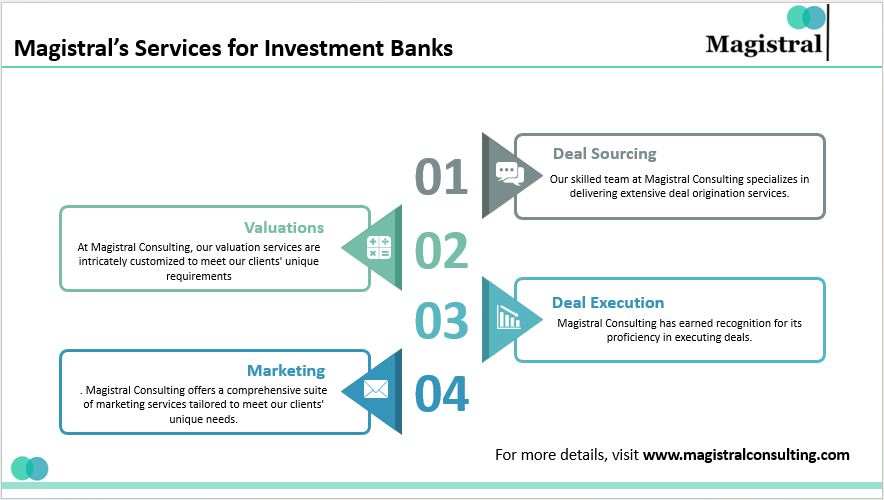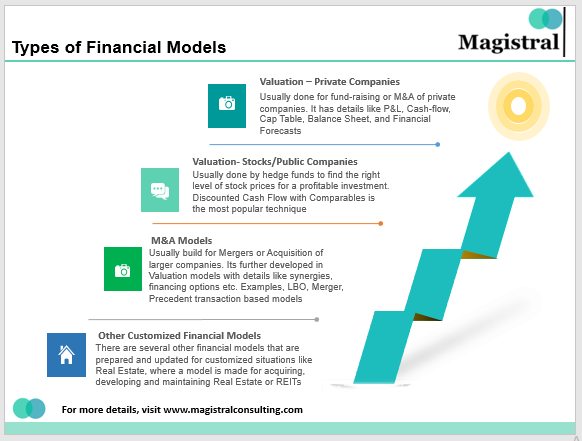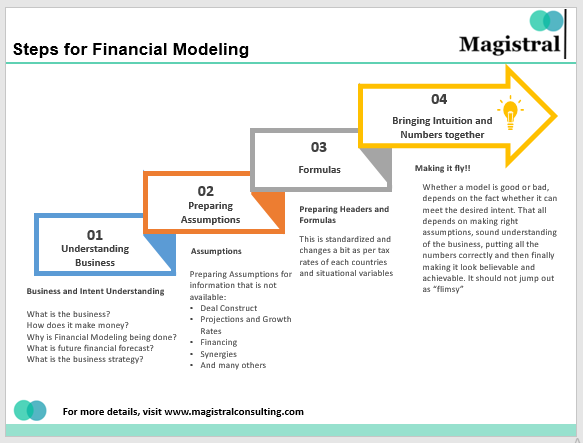Introduction
In the dynamic and rapidly evolving realm of finance, Investment Banks emerge as the quintessential pillars that not only facilitate but also catalyze economic growth, foster corporate development, and stimulate capital formation. Renowned for their unparalleled expertise and adeptness in navigating the intricate labyrinth of the financial markets, investment banks assume a pivotal and indispensable role in orchestrating the seamless flow of capital between discerning investors and ambitious corporations. As we embark on this exploration into the intricate inner workings of investment banks, we aim to unravel their multifaceted contributions to the global financial ecosystem, shedding light on the complex mechanisms that underpin their operations. Additionally, we will highlight the diverse constellation of investment banks that collectively shape the ever-evolving landscape of modern finance.
Understanding Investment Banks
At its essence, an investment bank serves as a pivotal intermediary connecting entities in pursuit of capital with those possessing the means to allocate it. Diverging from conventional commercial banking institutions, which predominantly engage in deposit-taking and loan disbursement, investment banks carve out a specialized niche in the financial domain. They excel in diverse functions such as underwriting securities, orchestrating mergers and acquisitions, extending advisory services, and executing intricate financial transactions. The breadth of their responsibilities spans a broad spectrum, encompassing activities ranging from the facilitation of capital accumulation to the meticulous management of risk.
Applications of Investment Banking
Investment banking is essential to the corporate world because it makes a variety of financial operations possible that support growth, innovation, and strategic expansion. Here, we examine the crucial uses of investment banking in the context of corporations:
Capital Raising
A fundamental function of investment banks is to aid corporations in raising capital to support their growth initiatives. Whether it’s through initial public offerings (IPOs), subsequent offerings, or debt issuance, investment banks offer invaluable expertise in structuring and executing capital-raising transactions. Leveraging extensive networks of investors, investment banks facilitate access to vital funds for financing new projects, pursuing acquisitions, or bolstering working capital.
Mergers and Acquisitions (M&A)
Investment banks act as dependable consultants for businesses pursuing strategic alliances, divestitures, mergers, or acquisitions. Investment bankers assist clients with every stage of the M&A process, from target selection and valuation to negotiation and deal structuring, by drawing on their extensive industry knowledge and transactional expertise. Investment banks help companies achieve synergies, increase market share, and create long-term, sustainable value for shareholders by enabling strategic deals.
Strategic Advisory Services
Beyond transactional support, investment banks offer strategic advisory services to corporations seeking guidance on a diverse array of strategic initiatives. This encompasses strategic planning, market entry strategies, capital allocation decisions, and corporate restructuring. Leveraging analytical prowess and industry insights, investment bankers deliver tailored recommendations that align with clients’ overarching goals and objectives, enabling them to navigate complex strategic challenges effectively.
Debt Financing
In addition to equity capital markets, investment banks play a vital role in arranging debt financing for corporations. Whether it’s syndicated loans, bond issuances, or structured finance solutions, investment banks assist corporations in optimizing their capital structure and securing funding on favorable terms. By tapping into debt capital markets, corporations can finance expansion projects, refinance existing debt, or manage liquidity requirements more efficiently, thereby enhancing financial flexibility and resilience.
Risk Management
Investment banks are essential to a company’s ability to manage a range of financial risks, such as currency, interest rate, and price risk for commodities. Investment banks give companies the ability to reduce their exposure to fluctuating market circumstances and hedge against unfavorable market moves by using derivative instruments like futures, options, and swaps. Corporations may enhance their resilience against market risks and preserve financial stability and shareholder value by putting strong risk management policies into place.
Investment Banking Process

Investment banking process
Origination
The investment banking process typically commences with the origination stage, wherein investment bankers identify opportunities for capital raising or corporate restructuring. This involves conducting extensive market research, assessing industry trends, and cultivating relationships with prospective clients. During this phase, investment bankers strive to understand the unique financial objectives and strategic imperatives of their clients, thereby laying the groundwork for tailored financial solutions.
Due Diligence
Investment banking professionals begins the due diligence process, which entails an in-depth assessment of the potential transaction’s operational, legal, and financial aspects, after identifying possible prospects. In addition to making sure that everyone involved have all the details before moving forward, this crucial stage seeks to identify any potential risks or obstacles that could cause the transaction to fail.
Structuring and Valuation
With a comprehensive understanding of the underlying dynamics, investment bankers proceed to structure the transaction and determine its appropriate valuation. This entails devising optimal capital structures, negotiating terms and conditions, and utilizing sophisticated financial models to ascertain the fair value of assets or securities involved in the transaction. By leveraging their expertise in finance and economics, investment bankers strive to maximize value for their clients while mitigating risks.
Underwriting and Syndication
Once the transaction is structured and valued, investment bankers assume the role of underwriters, wherein they commit to purchasing securities from the issuer at a predetermined price. This underwriting process provides assurance to the issuer regarding the successful completion of the offering, thereby instilling confidence among investors. Subsequently, investment bankers engage in syndication, whereby they distribute the securities to a diverse array of institutional and retail investors, thereby broadening the investor base and enhancing liquidity.
Execution and Closing
The culmination of investment banking process culminates in the execution and closing stage, wherein the transaction is consummated, and the funds are transferred. Investment bankers play a pivotal role in orchestrating the seamless execution of the transaction, liaising with various stakeholders, coordinating legal and regulatory compliance, and ensuring adherence to timelines. Through meticulous attention to detail and proactive management, investment bankers’ endeavor to navigate the complexities of the closing process and deliver value to their clients.
Regulatory Compliance and Risk Management
This section focuses on the regulatory landscape within which investment bank’s function and the steps they implement to ensure adherence to regulations and proficient risk management. It encompasses discussions on regulatory frameworks, adherence to securities laws, strategies for combating money laundering (AML), and approaches for assessing and mitigating risks effectively.
Magistral’s Services for Investment Banks
Magistral Consulting is proud to offer its Investment Banking Services, providing a comprehensive range of tailored solutions to meet the diverse needs of our esteemed clients:

Magistral’s services for Investment banks
Deal Sourcing
Our skilled team at Magistral Consulting specializes in delivering extensive deal origination services. Utilizing a strong network and deep market insights, we meticulously uncover lucrative investment prospects. Through thorough analyses of industries and markets, we identify emerging trends and opportunities, pinpointing potential investment targets. Our meticulously curated industry bulletins ensure our clients stay informed about the latest developments, empowering them to seize strategic opportunities and maintain a competitive edge.
Valuations
Our valuation services have been customized to match the specific needs of each of our clients. We use advanced techniques and cutting-edge analytics to produce precise and perceptive valuations, from performing LBO and DCF modelling to financial analysis and precedent transaction appraisals. Our main goal is to provide clients with the information they need to make informed investment decisions, whether they are analyzing current portfolios or potential buying decisions. We continue to be relentless in our commitment to provide unparalleled valuation knowledge.
Deal Execution
Magistral Consulting has been recognized for its ability to close transactions. Our signature is efficiently and precisely guiding clients through every stage of the transaction process. We create smooth deal execution methods with the goal of maximizing value and lowering risk, from creating captivating teasers and investment letters to locating possible buyers and investors. Our proactive approach and thorough attention to detail guarantee perfect transaction execution, providing our valued clients with outstanding outcomes.
Marketing
Effective marketing is critical to raising awareness and creating interest in investment options in today’s intensely competitive industry. Magistral Consulting provides a full range of marketing services that are customized to each individual client’s requirements. Creating white papers, case studies, impact analysis reports, thought leadership articles, and insights into sustainable investing are all included in this. Our Perspectives (PoVs) offer industry-leading knowledge and experience, establishing our clients as leaders and drawing interest from possible partners and investors.
About Magistral Consulting
Magistral Consulting has helped multiple funds and companies in outsourcing operations activities. It has service offerings for Private Equity, Venture Capital, Family Offices, Investment Banks, Asset Managers, Hedge Funds, Financial Consultants, Real Estate, REITs, RE funds, Corporates, and Portfolio companies. Its functional expertise is around Deal origination, Deal Execution, Due Diligence, Financial Modelling, Portfolio Management, and Equity Research
For setting up an appointment with a Magistral representative visit www.magistralconsulting.com/contact
About the Author
The article is Authored by the Marketing Department of Magistral Consulting. For any business inquiries, you could reach out to prabhash.choudhary@magistralconsulting.com



